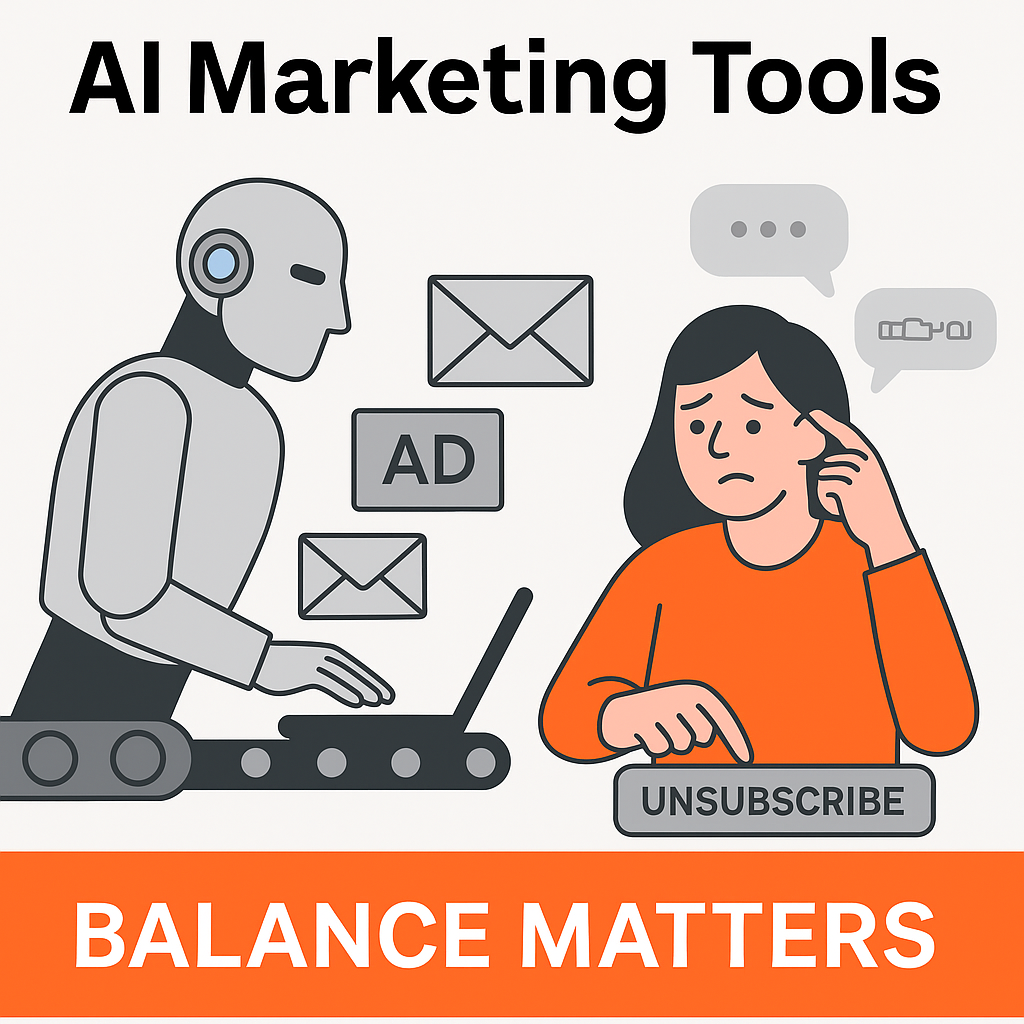Don’t get me wrong—I love AI Marketing Tools. They’ve saved me countless hours, boosted my email open rates, and even helped me design better ads. But after using them heavily for more than a year, I’ve noticed something that no one really talks about: there are real downsides if you lean on AI too much. And honestly, I learned this the hard way.

When Everything Starts to Sound the Same
Last fall, I scheduled a month’s worth of blog newsletters using Jasper and Copy.ai. I was so proud of myself—I thought I had finally hacked productivity. But after a few weeks, readers started unsubscribing. One even replied, “Your emails feel generic now.”
That stung. And when I went back and reread the emails, I realized they were right. The copy wasn’t bad, but it lacked my personal touch. Every sentence was a little too polished, almost like it could’ve been written for anyone, not for my specific audience.
Lesson learned: AI drafts are a great starting point, but publishing them untouched can make your brand feel soulless.
Data Can Be Misleading
Another thing I noticed: AI-powered analytics sometimes push you in the wrong direction. For example, Surfer SEO once suggested I use the phrase “AI-powered marketing assistant” 14 times in one post. I followed it to the letter, and while the SEO score was perfect, the article felt robotic. Readers noticed. Bounce rates went up.
That taught me something important: data is valuable, but it shouldn’t dictate every creative decision. You have to trust your gut sometimes.
Over-Automation Hurts Relationships
One of the reasons people support small businesses is because they want to feel a connection. I forgot that for a while. I let an AI chatbot handle 90% of my customer service. At first, it was amazing—instant replies, no late-night stress. But then a loyal customer messaged me saying, “I miss talking to a real person.”
That hit me. I reintroduced a personal note in my follow-ups—sometimes just a quick voice message or a handwritten thank-you in their order. Engagement shot back up. AI is great, but it can’t replace the warmth of genuine human interaction.
The Risk of Over-Dependence
Here’s the scary part: once you get used to AI, it’s hard to imagine working without it. I noticed that my own copywriting muscles were getting weaker. The first time I sat down to write without AI, I struggled. It was like forgetting how to ride a bike.
So now, I make sure to write something—anything—completely from scratch every week. A blog intro, a short email, even just a tweet. It keeps my voice sharp and reminds me why people followed me in the first place.
Finding the Balance
I’m not saying you should ditch AI Marketing Tools—far from it. They’re incredible, and I still use them every day. But I’ve found that the magic happens when you combine AI’s efficiency with your own creativity.
Here’s my new rule of thumb:
- AI for the heavy lifting. Drafts, keyword suggestions, quick graphics.
- Me for the final touch. Editing tone, adding stories, making it personal.
This balance has kept my content authentic without sacrificing productivity.
Final Thoughts
AI isn’t the enemy. Over-reliance is. In 2025, customers can smell generic content a mile away. What they crave is authenticity. AI Marketing Tools can help you get there faster, but they can’t give your brand a voice—that’s still on you.
So use AI. Lean on it when you’re busy. But never forget: your personal touch is the thing your audience will remember. And that’s something no machine can replace.